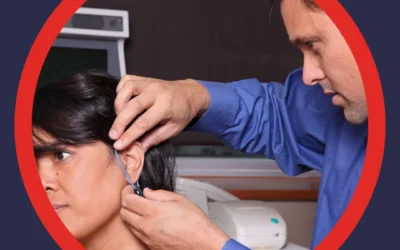Hearing is a bedrock feature of communication. Although we also communicate through visual cues, gestures, and other non-verbal means, hearing is one of the most common ways to gather what others mean to communicate. Those with hearing impairment or deafness rely on these other ways to communicate, but many people take for granted that listening is a central function of communication for them. What happens to the process of communication when hearing ability is lost? When communication shifts away from hearing what others have to say, this loss can start a ripple effect of other changes in the body. One of these changes has to do with cognition. The auditory nervous system no longer functions as the central hub of meaning creation, and the brain has to shift to create new meaningful pathways.
Each September, we take the opportunity to celebrate World Alzheimer’s Month. This annual event is a time to consider the strides that have been made in Alzheimer’s research. It is also a chance to honor, celebrate, and thank those who provide paid or unpaid care to people with Alzheimer’s in our families and communities. In addition to these emphases of World Alzhiemer’s Month, what else can you do to celebrate? What we know about the relationship between hearing loss, communication, and Alzheimer’s points to another step you can take this month: getting a hearing test. If you get a hearing test, you can use that assessment to set you up for treatment, if necessary. That treatment, in turn, can significantly reduce your risk of Alzheimer’s down the road. Let’s take a look at this connection and what we know about hearing, communication, and cognition.
Communication and Cognition
Our brains are the central processing unit for the body, taking in all kinds of information from our sensory systems and transforming those signals into something useful for the body. When we receive those signals, the brain channels information to regions where complex thought can take place, and advanced cognition helps to prevent dementia. However, when the signals from our sensory organs are limited or cut off, the brain has to reorient itself to make meaning. Rather than simply processing a range of stimuli that are familiar, the brain needs to redistribute its resources to make it possible to understand what is going on. Recent research has discovered that this process is exactly what we see in the mind of a person with hearing loss. Even those with mild hearing loss change the way the brain processes information in physical ways. Brain scans show that regions that are usually devoted to complex thought can be recruited to the simpler task of transforming sound into meaningful language. Those brain scans actually show different regions activating in the cognitive process of a person with hearing loss and a person without hearing loss. Just as communication is a way to keep the pathways between sensation and meaning clear and fluid, any break in that process can cause a ripple effect of other problems. Untreated hearing loss breaks down the relationship between sound, language, and meaning, with indirect effects that raise the risk of dementia, including Alzheimer’s.
If you know someone who has untreated hearing loss, there is a simple step you can take this month to celebrate World Alzheimer’s Month. By encouraging that person to get a hearing test, you will be making it possible to step toward treatment. Those who get treatment for hearing loss show much lower risk of Alzheimer’s than those who do need but do not wear hearing aids. Hearing aids come with many other benefits, as well. Not only do they help reduce the risk of Alzheimer’s, but they also promote better physical health, mental health, and strong relationships. If you want to secure these benefits for your loved one, you only need to open a conversation about getting a hearing test. Your gentle encouragement might be all it takes to help your loved one embrace the option of hearing treatment. Once the test is complete, our hearing health professionals can recommend the right hearing aids for your individual needs, so don’t delay making your appointment!
Contact American Hearing + Audiology for an appointment at one of our top-rated hearing centers.



